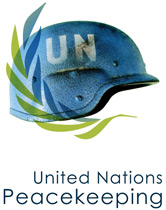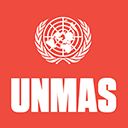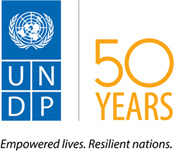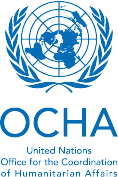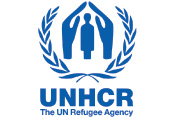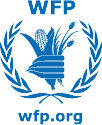
E-MINE
THE UN MINE ACTION GATEWAY
Twelve United Nations Departments and Offices of the Secretariat, specialized agencies, funds and programmes play a role in mine-action programs in 30 countries and three territories. A policy developed jointly by these institutions (Mine Action and Effective Coordination: the United Nations Inter-Agency Policy) guides the division of labor within the United Nations. Much of the actual work, such as demining and mine-risk education, is carried out by nongovernmental organizations. But commercial contractors and, in some situations, militaries, also provide humanitarian mine-action services. In addition, a variety of intergovernmental, international and regional organizations, as well as international financial institutions, also support mine action by funding operations or providing services to individuals and communities affected by landmines and explosive remnants of war.
The twelve United Nations Departments and Offices of the Secretariat, specialized agencies, funds and programmes are: the United Nations Mine Action Service of the Department of Peacekeeping Operations (UNMAS/DPKO), the Office for Disarmament Affairs (ODA), the United Nations Development Programme (UNDP), the United Nations Office for the Coordination of Humanitarian Affairs(OCHA), the Office of the United Nations High Commissioner for Human Rights (OHCHR), the Office of the United Nations High Commissioner for Refugees (UNHCR), the United Nations Children’s Fund (UNICEF), the United Nations Entity for Gender Equality and the Empowerment of Women (UN-Women), the United Nations Office for Project Services (UNOPS), the Food and Agriculture Organization of the United Nations (FAO), the World Food Programme (WFP) and the World Health Organization (WHO). The United Nations Institute for Disarmament Research (UNIDIR) and the World Bank are observers.

The Strategy presents the common objectives and commitments that will guide the UN in mine action over the next 6 years. DOWNLOAD THE PDF
- The vision of the United Nations is a world free of the threat of landmines and explosive remnants of war, where individuals and communities live in a safe environment conducive to development and where the needs of victims are met. The inter-agency partners working towards the achievement of this vision are:
- UN Department of Peacekeeping Operations (DPKO)
- DPKO integrates mine action into worldwide UN peacekeeping operations in line with a November 2003 Presidential Statement of the Security Council. Mr. Hervé Ladsous, the Under-Secretary-General for Peacekeeping Operations chairs the Inter-Agency Coordination Group on Mine Action, which brings together representatives from all UN mine-action entities. UNMAS provides direct support and assistance to UN peacekeeping missions. Careers & Business Opportunities
- United Nations Mine Action Service (UNMAS)
- UNMAS is located in the Department of Peacekeeping Operations Office of Rule of Law and Security Institutions and is the coordinator for the Inter-Agency Coordination Group on Mine Action, which brings together working-level representatives of UN organizations involved in mine action to develop or revise policies and strategies, set priorities among UN players and share information. Careers & Business Opportunities
- United Nations Office for Disarmament Affairs (UNODA)
- UNODA advises and assists the UN Secretary-General in his work related to the Anti-Personnel Mine-Ban Treaty and the Convention on Certain Conventional Weapons. ODA promotes universal participation in international legal frameworks related to landmines and explosive remnants of war and assists countries in complying with their treaty obligations Careers & Business Opportunities
- United Nations Development Programme (UNDP)
- Through its country offices and its New York-based Mine Action Team of the Bureau for Crisis Prevention and Recovery, UNDP assists mine-affected countries to establish or strengthen national and local mine action programmes. Careers & Business Opportunities
- United Nations Children's Fund (UNICEF)
- UNICEF was created to work with others to overcome the obstacles that violence, poverty, disease and discrimination place in a child's path. This includes children in mine-affected countries globally. UNICEF supports the development and implementation of mine risk education and survivor assistance projects and advocacy for an end to the use of landmines, cluster munitions and other indiscriminate weapons. Careers & Business Opportunities
- United Nations Office for Project Services (UNOPS)
- UNOPS is a principal service provider in mine action, offering project management and logistics services for projects and programmes managed or funded by the United Nations, international financial institutions, regional and sub-regional development banks or host governments. Careers & Business Opportunities
- United Nations Institute for Disarmament Research (UNIDIR)
- UNIDIR generates ideas and promotes action on disarmament and security. Based in Geneva, UNIDIR is centrally positioned to assist the international community in developing the practical, innovative thinking needed to find solutions to the challenges of today and tomorrow.
- United Nations Mine Action is also supported by:
- Food and Agricultural Organisation (FAO)
- The FAO has a mandate to provide humanitarian relief, which sometimes requires the organization to participate in mine action in complex emergencies, particularly in rural areas.
- Office for the Coordination of Humanitarian Affairs (OCHA)
- OCHA shares information with all other organizations about the humanitarian impact of landmines and works with UNMAS on resource mobilization. OCHA is manager of the UN Central Emergency Revolving Fund and coordinator of the "Consolidated Appeal Process," both of which provide or mobilize financial resources for mine action.
- UN Women (UN Women)
- UN Women, among other issues, works for the elimination of discrimination against women and girls; empowerment of women; and achievement of equality between women and men as partners and beneficiaries of development, human rights, humanitarian action and peace and security.
- UN High Commissioner for Human Rights (OHCHR)
- The OHCHR does not have any specific mandate in the field of mine action, but it does carry out several relevant projects. OHCHR, for example, seeks to protect the rights people with disabilities, including survivors of landmines or unexploded ordnance.
- Office of the United Nations High Commissioner for Refugees (UNHCR)
- UNHCR involvement in mine action ranges from advocacy against the use of anti-personnel mines and ensuring the provision of mine risk education, to associated humanitarian and/or victim assistance activities, primarily to ensure safe return and reintegration of refugees and IDP’s by safeguarding freedom of movement in the area of return.
- World Food Programme (WFP)
- WFP is involved in the clearance of landmines and unexploded ordnance to facilitate delivery of food assistance in emergency situations.
- World Health Organisation (Injuries and Violence Prevention Department) (WHO)
- WHO is primarily responsible for the development of standards, the provision of technical assistance and the promotion of institutional capacity building in victim assistance. It works with the ministries of health of affected countries and cooperates closely with UNICEF and the International Committee of the Red Cross.
- World Bank (WB)
- The World Bank helps address the long-term consequences of landmines and unexploded ordnance on economic and social development. It also plays a significant role in mobilizing resources.

